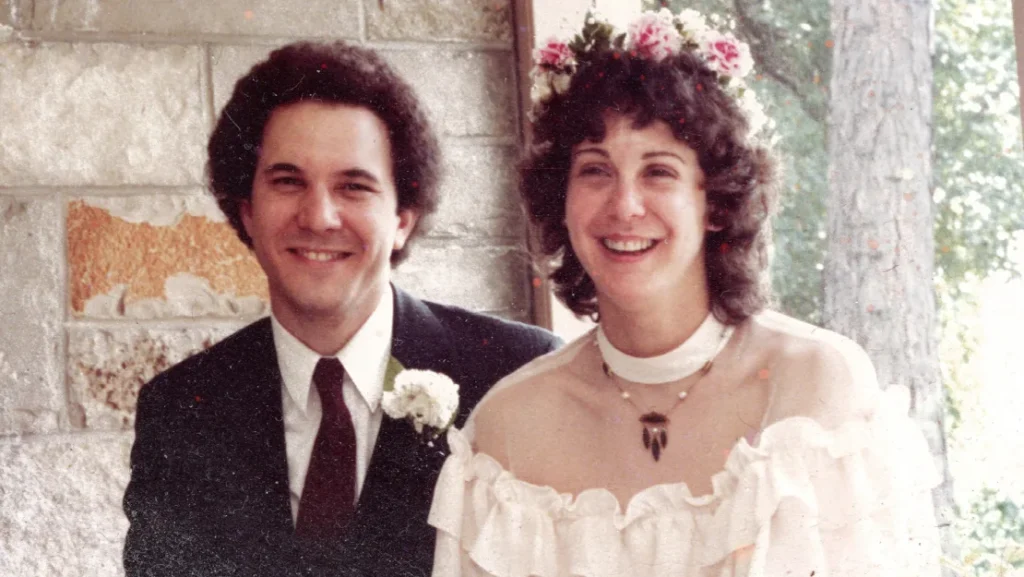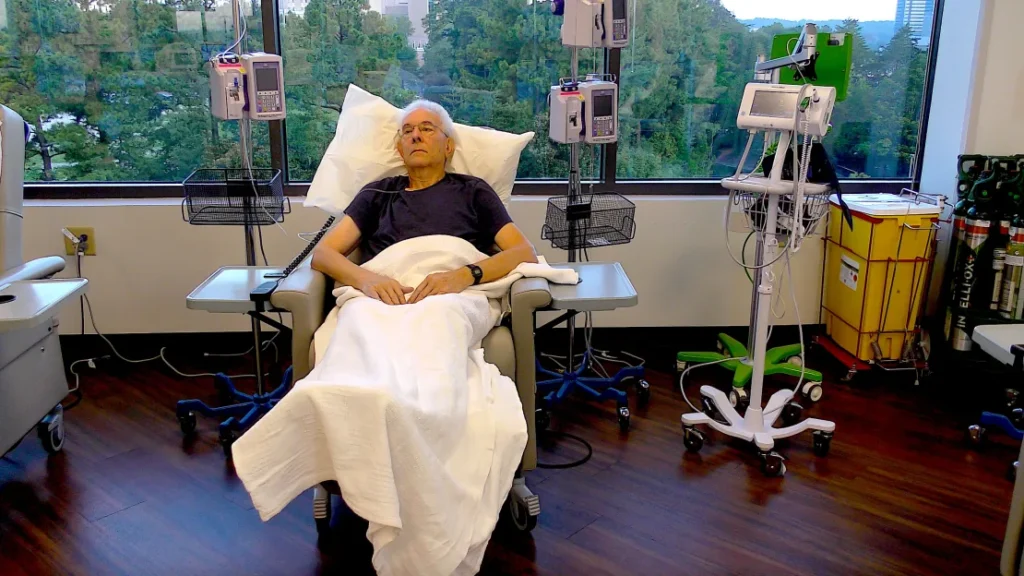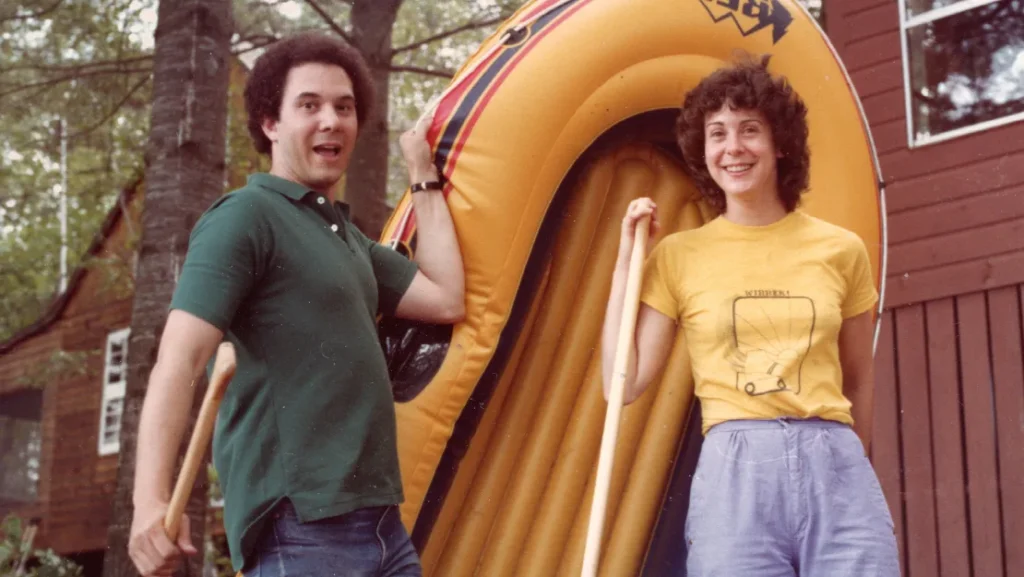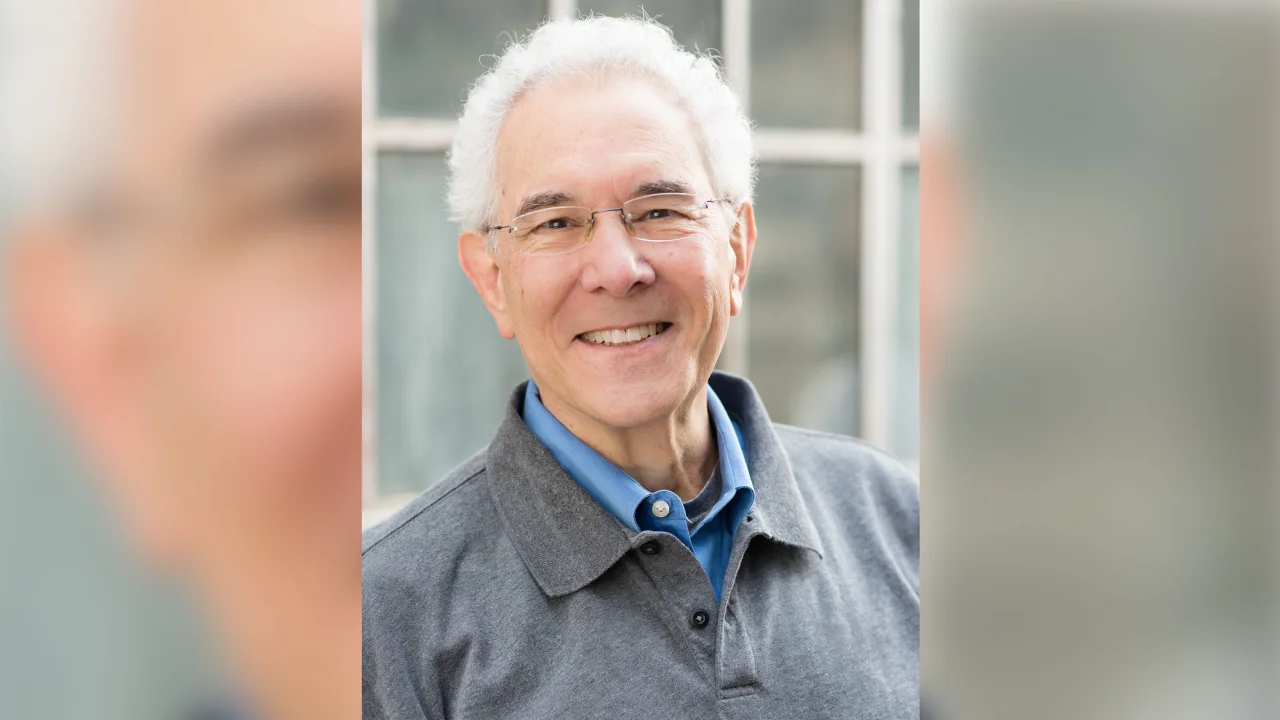There was no stopping the tears.
Five and a half months after being diagnosed with pancreatic cancer, six weeks after the last of seven chemotherapy infusions and four days after major surgery, the doctor was ready to discharge me from the hospital.
All I needed to do was deliver a bowel movement to prove my digestive system was working. That evening, I was alone in my hospital room with an Iranian-born nurse who at 37 was my son’s age. We had gotten friendly — a Muslim and a Jew, swapping stories about our childhoods, careers and children.
While he was typing on the computer to update my information, I started crying. After being strong and not showing much emotion for months, this was the moment when I needed to let it all out. The nurse quickly came over to my bed to comfort me. Later, he would return with medicine to help me have an important release for my body.
I assumed I could fight cancer on my own
I don’t usually cry, and it’s not just because I’m a man. It’s something I inherited from my parents. They always found strength to face their challenges. My mother had a tough upbringing. Her dad, who came from Russia, left the family a few years before the Great Depression. Later, her mom lost her sight because of an eye condition called glaucoma, and then she lost her hearing too. After such a tough childhood, my mother learned to be independent and not rely on anyone.
My dad, who was quiet and gentle, had his own kind of strength. He had a high tolerance for hard work and never complained. He believed that those who were strong should take care of those who were not as strong. Even though he didn’t make a lot of money, he took his responsibilities seriously.
When I was dealing with cancer, I thought I could handle it on my own, drawing strength from my family history. I believed my inner strength would beat the tough side effects of chemotherapy that affect most people. But I was mistaken. The chemotherapy before my surgery brought on constant feelings of sickness, diarrhea, extreme tiredness from not having enough fluids, losing my hair, never-ending hiccups, having a bit of blood in my mucus, and feeling pain when I touched something cold.
As time went on, I realized what it truly meant to be a patient: feeling weak and needing others for support. I came to understand that I wasn’t just benefiting from my caregivers’ skills, but also their unwavering dedication. I found a special connection with them, but like many men, I had to learn this lesson one step at a time.
I didn’t want to accept help
I didn’t want to think of myself as a patient, especially because my initial diagnosis seemed positive. When my main doctor called to talk about the results of the CT scan that showed the tumor in my pancreas, he started by saying, “This is good news!”
Compared to what it could have been, he was correct. The tumor was in an early stage and wasn’t close to any important blood vessels. Plus, there were no signs that it had spread elsewhere in my body. I was a little worried but never overly stressed about my treatment.
My wife Ellen, whom I’ve been married to for 40 years, was quite worried. She pictured me returning from the hospital looking pale and weak, with tubes coming out of me that looked as red as fruit punch. She got this scary image after looking up pancreatic cancer online, where she read about its high chances of being deadly (which is true), and the surgery that sounded really intense (though it was described in an exaggerated way). She was sure that I would require a lot of help from her, along with a whole team of friends, neighbors, cooks, nurses, and physical therapists.

I was determined that I didn’t want help from any of them. I intended to manage my own meals, exercise, and what experts call “everyday activities.”
A friend of mine, a psychologist named Avrum Weiss, explained that my brain was working the way it had been taught by society. It was processing my thoughts and feelings based on what’s traditionally expected of men. He said, “Men often see being manly as a goal they have to achieve, something they have to prove.” Weiss wrote a book called “Hidden in Plain Sight: How Men’s Fears of Women Shape Their Intimate Relationships.”
My playbook didn’t play well at home
Ellen and I had a disagreement about where she should wait during my surgery. I thought it didn’t make sense for her to come to the hospital so early at 5:15 a.m. and wait uncomfortably for hours until the surgery was done. It seemed more sensible for her to come later when I would be out of the recovery room and she would be well-rested, I thought. But what made sense to me really hurt Ellen’s feelings. (The surgeon ultimately decided that Ellen should be there.)
We were at odds, like in a standoff. Beneath the angry expressions and silent resentments, the real problem was control, or rather, feeling like we didn’t have any. Ellen was hit hard: she couldn’t control the cancer, and she felt helpless in influencing how I handled it.
Our arguments created so much tension that we attempted couples counseling. Unfortunately, it didn’t work out. After four sessions, the psychologist told us he didn’t want to keep taking our time and money just to hear us argue.
A turning point in my healing
I really valued my personal space and freedom. Normally, I love being the center of attention and making people laugh. But when it came to sharing details about my medical journey, I wasn’t interested. I didn’t want others to see me as someone who needed fixing. At first, we only shared the news with our closest friends and family. However, the love and support we got made me see that they were genuinely trying to help. Not telling our friends felt wrong, almost like lying. So, we started to share the news with more people.
Sometimes, being open about my situation didn’t always go as planned. Some people would blurt out things like, “My relative died of pancreatic cancer!” But most of the messages and calls I received were really uplifting. An old high school friend reached out after 54 years just to show their support. It seemed like my team of supporters was coming together, whether I asked for it or not.
Friends who had dealt with cancer themselves gave me tips, offered to do grocery shopping, gave me breaks when I needed, and even gave me rides to the doctor. Some of these were folks I had forgotten to reach out to when they were unwell. At the time, I thought I was too distant from their lives and didn’t want to bother them. Looking back, I realize I was being a bit immature. I won’t make that mistake again.
Connecting with my surgeon
After the chemotherapy, I had surgery. The surgeon was confident, like a pro football player, but also approachable. He said he had done this type of surgery, called a Whipple procedure, many times. This procedure, named after Dr. Allen Oldfather Whipple, who came up with it in the 1930s, involves removing the tumor along with parts of the stomach, intestines, and the entire gallbladder. It’s a complicated operation because it involves making new connections between these organs.
After the surgery, in my hospital room, there was a sudden closeness with the hospital staff due to the hospital gown, the urinary catheter, and two surgical drains in my abdomen.

Everyone I encountered — not only the doctors and nurses, but also physician assistants, physical therapists, housekeepers and food servers — was committed to my well-being. Friends fortified my spirit. And Ellen was overseeing it all. No argument from me, not anymore. Together, they created a healing environment I thought I didn’t need.
My surgeon soon dropped the formality of calling me “Mr. Segal,” in favor of the shorter, friendlier “Segal.” As in, “Segal, I hear you want to get out of the hospital.” During his rounds the evening before my discharge, I took my new informal moniker as a cue to promote male bonding with a vulgar joke about a genie in a magic lantern. After a hearty laugh, he began calling some people “a–holes” and even dropped the f-bomb.
The connections that matter
Ellen’s brother, a retired critical care doctor, had offered to come to Atlanta from Annapolis, Maryland, when I was discharged. While I thought it was overkill, she welcomed his moral support and the extra set of hands in case something terrible happened at home.

While the three of us were driving back from the hospital, he entertained us with wild ideas about getting back at his “enemies,” even talking about messing with their body parts that distinguish men from women. It was all in good fun. Something magical happened though. In the following days, he felt more like a close friend than just family.
Our long-time friends really came through with comforting meals for Ellen and food that fit my special diet. They also kept in touch through calls, messages, and sent funny get-well cards. A friend’s husband even joined me for walks. I had never realized just how many people were there to support me (and Ellen too).
Finding connection with my wife
My chances of recovery look pretty good. The report from the pathologist says the removed tumor was completely taken out by the surgeon. They checked 34 lymph nodes and found no signs of cancer, which means it’s unlikely it spread.
Still, just in case there are tiny, undetectable cancer cells left, I’ll have five more rounds of chemotherapy. At this stage, I’m grateful for any help I can get to get through those tough ten weeks.
Luckily, Ellen and I are more ready for this now. We’ve found ways to connect as caregiver and patient. For example, after my surgery, I started walking a bit hunched over, thinking it would protect me from abdominal pain (even though it wasn’t necessary). To help me stand up straight, Ellen uses a saying from a popular TV show called “The Marvelous Mrs. Maisel” – she says “Tits up!” It’s much more encouraging than just saying “Stand up straight.” It not only helps my posture but also boosts my overall attitude. At this point, I truly appreciate it.
SOURCE:CNN

